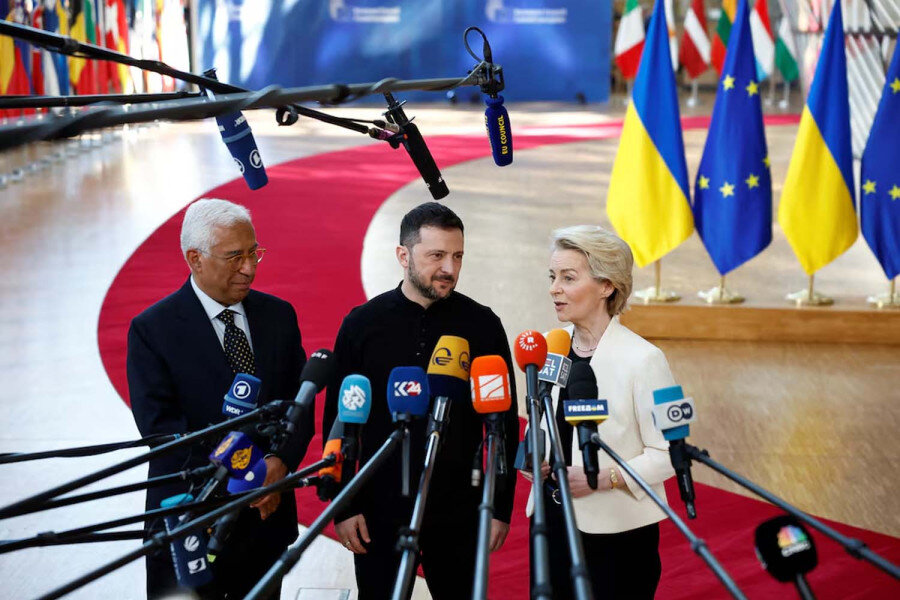EU leaders agree on defense surge

European leaders on Thursday backed plans to spend more on defense and continue to stand by Ukraine in a world upended by Donald Trump’s reversal of US policies.
The European Union’s defense summit in Brussels took place amid fears that Russia, emboldened by its war in Ukraine, may attack an EU country next and that Europe can no longer rely on the US to come to its aid, Reuters reported.
“Today we have shown that the European Union is rising to the challenge, building the Europe of defense and standing with Ukraine shoulder to shoulder,” the chairman of the meeting Antonio Costa told reporters.
EU leaders hailed the European Commission’s proposals this week to give them fiscal flexibility on defense spending, and to jointly borrow up to 150 billion euros ($160 billion) to lend to EU governments to spend on their militaries.
In a joint statement agreed by all 27 member states, the leaders called on their ministers to examine these proposals in detail urgently.
“Europe must take up this challenge, this arms race. And it must win it,” Polish Prime Minister Donald Tusk said at a special defense summit in Brussels.
“Europe as a whole is truly capable of winning any military, financial, economic confrontation with Russia - we are simply stronger,” Tusk said.
French President Emmanuel Macron, who on Wednesday had told French voters that Russia was a threat to France and Europe, said all this was just a first step.
“Whatever happens in Ukraine, we need to build autonomous defense capacities in Europe,” he said after the EU summit.
The EU leaders also voiced support for Ukraine, but that statement was agreed without Hungary’s nationalist leader Viktor Orban, a Trump ally, who is also cultivating ties with Moscow.
In their statement, the other 26 EU leaders stressed that there can be no negotiations on Ukraine without Ukraine, and vowed to continue to give it aid, according to a recent draft.
“We are here to defend Ukraine,” Costa said as he and European Commission Chief Ursula von der Leyen, both smiling broadly, warmly welcomed Ukrainian President Volodymyr Zelenskiy to the summit, in sharp contrast with the clash between Trump and Zelenskiy in the Oval Office last week.
But decades of reliance on US protection, divergences on funding and on how France’s nuclear deterrence could be used for Europe showed how difficult it would be for the EU to fill the void left by Washington after it froze military aid to Ukraine.
Washington provided more than 40% of military aid to Ukraine last year, according to NATO, some of which Europe could not easily replace. Some leaders still held out hope, in public at least, that Washington could be coaxed back into the fold.
Leave a Comment